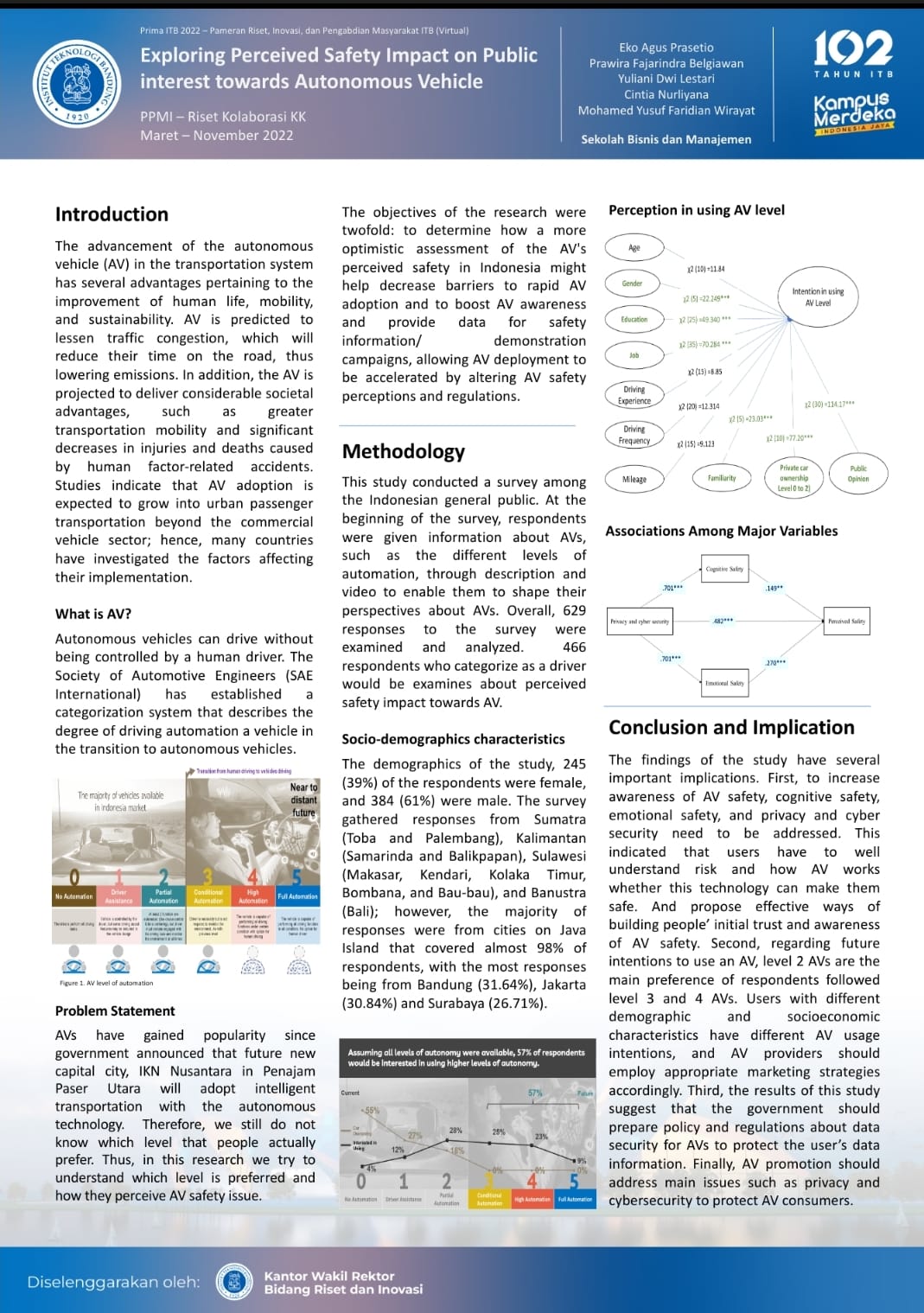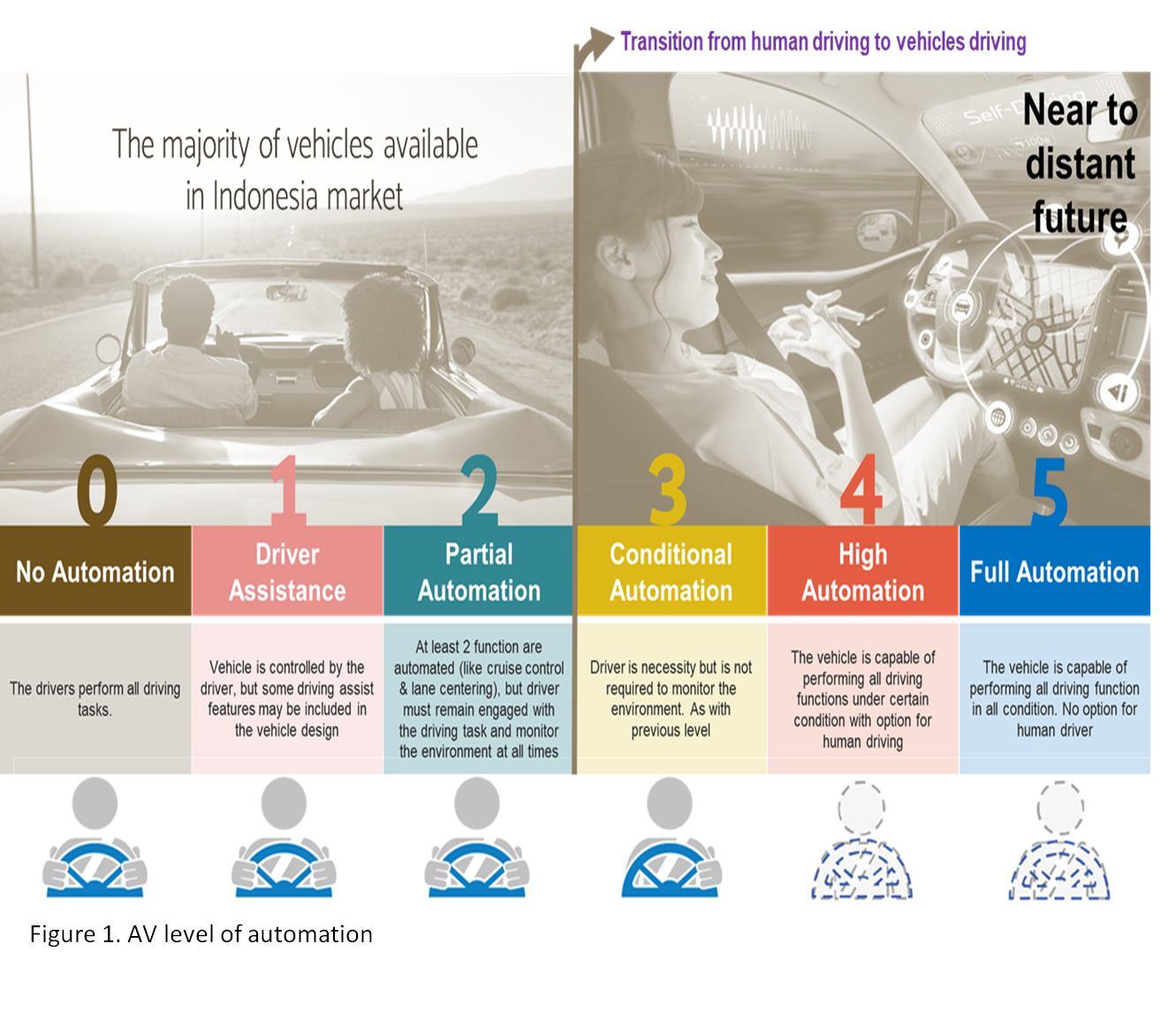
Autonomous vehicles (AV) can drive without being controlled by a human driver. Studies indicate that AV adoption is expected to grow into urban passenger transportation beyond the commercial vehicle sector; hence, many countries have investigated the factors affecting their implementation. AVs have gained popularity since the government announced that the future new capital city, IKN Nusantara in Penajam Paser Utara, will adopt intelligent transportation with autonomous technology. Therefore, we still do not know which level people actually prefer. Thus, in this research, we try to understand the preferred level and how they perceive AV safety issues.
The objectives of the research are to determine how a more optimistic assessment of the AV’s perceived safety in Indonesia might help decrease barriers to rapid AV adoption and to, boost AV awareness, and provide data for safety information/ demonstration campaigns, allowing AV deployment to be accelerated by altering AV safety perceptions and regulations.
The description of the research was published in a poster in Pameran Riset, Inovasi, dan Pengabdian Masyarakat (PRIMA) ITB 2022 last 20 December 2022. The authors were Eko Agus Prasetio, Prawira Fajarindra Belgiawan, Yuliani Dwi Lestari, Cintia Nurliyana, and Mohamed Yusuf Faridian Wirayat. The research was conducted in collaboration with several Expertise Groups (KK) in the School of Business and Management ITB from March to November 2022. The poster’s title was “Exploring Perceived Safety Impact on Public Interest Toward Autonomous Vehicles.”

Survey to Indonesian General Public
This study surveyed the Indonesian general public. At the beginning of the survey, respondents were given information about AVs, such as the different levels of automation, through description and video to enable them to shape their perspectives about AVs. Overall, 629 responses to the survey were examined and analyzed. 466 respondents who categorize as a driver would be examined about the perceived safety impact of AV.
Of the demographics of the study, 245 (39%) of the respondents were female, and 384 (61%) were male. The survey gathered responses from Sumatra (Toba and Palembang), Kalimantan (Samarinda and Balikpapan), Sulawesi (Makasar, Kendari, Kolaka Timur, Bombana, and Bau-bau), and Banustra (Bali); however, the majority of responses were from cities on Java Island that covered almost 98% of respondents, with the most responses being from Bandung (31.64%), Jakarta (30.84%) and Surabaya (26.71%).

Conclusion
The findings of the study have several important implications. First, cognitive safety, emotional safety, privacy, and cyber security need to be addressed to increase awareness of AV safety. This indicated that users must understand risk, how AV works, and whether this technology can make them safe. And propose effective ways of building people’s initial trust and awareness of AV safety. Second, regarding future intentions to use an AV, level 2 AVs are the main preference of respondents, followed by level 3 and 4 AVs. Users with different demographic and socioeconomic characteristics have different AV usage intentions, and AV providers should employ appropriate marketing strategies accordingly. Third, the results of this study suggest that the government should prepare policies and regulations about data security for AVs to protect the user’s data information. Finally, AV promotion should address main issues such as privacy and cybersecurity to protect AV consumers.

